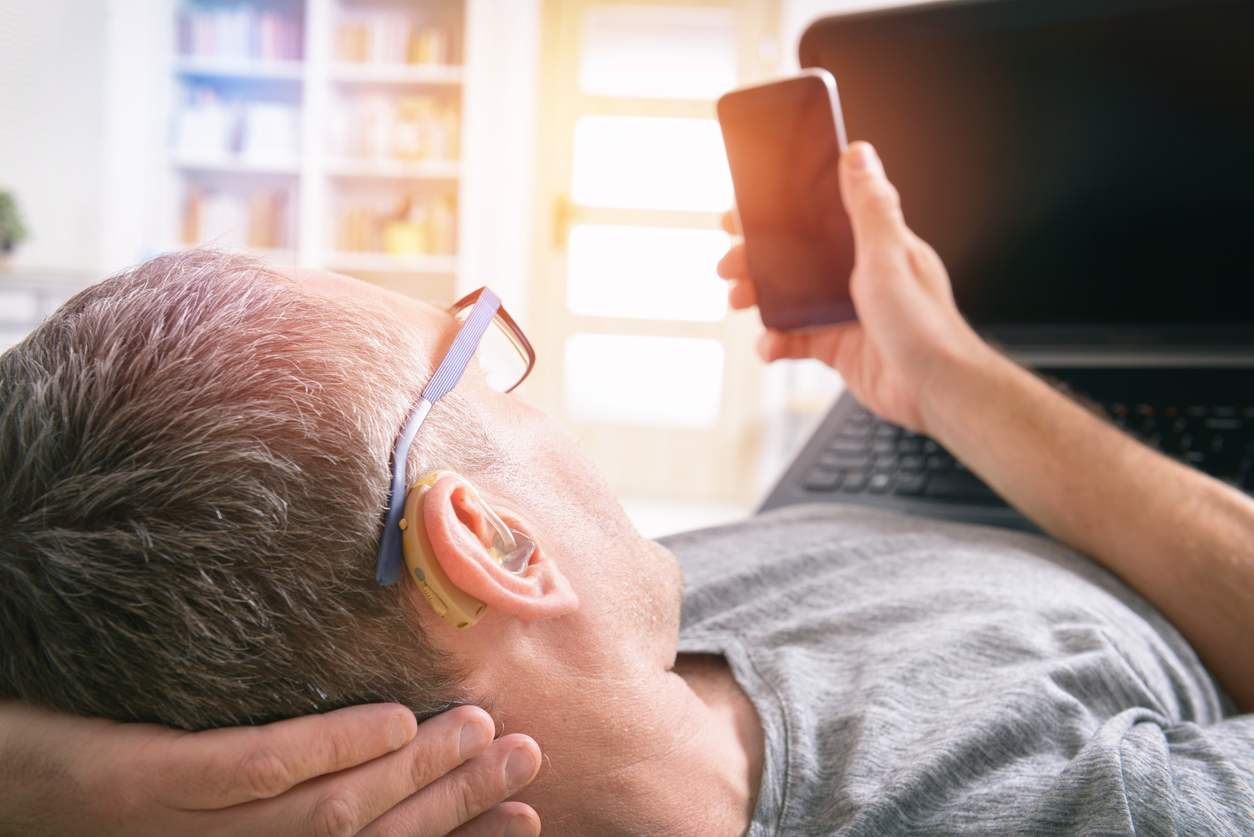If you are new to hearing aids, you may be wondering if you should wear them all the time. The short answer? Yes!
It is important to wear your hearing aids during your waking hours. Even if you are reading a book or engaging in another quiet activity where you think you don’t need them. Wearing your device consistently will be the most beneficial towards your hearing health.
How Hearing Loss Affects Your Brain

Your brain has to work harder to process sounds when you have hearing loss, particularly speech. This can lead to you experiencing mental fatigue easier during work meetings or when out socializing with friends.
Hearing loss can also deprive your brain of stimulation. When your brain is deprived of certain sounds for a long period of time, it can lose the ability to process them. If left untreated, the parts of the brain that process these sounds may begin to shrink and atrophy. This can lead to worsening hearing loss and even impair cognitive function.
Hearing Aids Can Help Cognition
A small study found that wearing hearing aids “may reverse compensatory changes in cortical resource allocation”—in other words, negative changes in your brain may improve with consistent hearing aid use. Brain shrinkage may slow or stop, and your brain may begin to pick up on sounds it had forgotten how to process.
However, the benefits of hearing aids on cognition are only seen if hearing aids are worn consistently.
Is it Ever OK to Take Out Hearing Aids?
While consistent use is essential, there are occasions when it’s okay to take out your hearing aids.
You should remove your hearing aids every night before going to bed. Just make sure to wipe them off and store them somewhere cool and dry before falling asleep.
You also want to avoid getting your devices wet. Be sure to take them out when you shower or before going for a swim at the Shipe Pool.
Other than that, we recommend that you leave your hearing aids in to maximize your hearing capabilities and keep your mind working sharp.
For more information on how to best use your devices, contact River ENT today to make an appointment with one of our specialists.